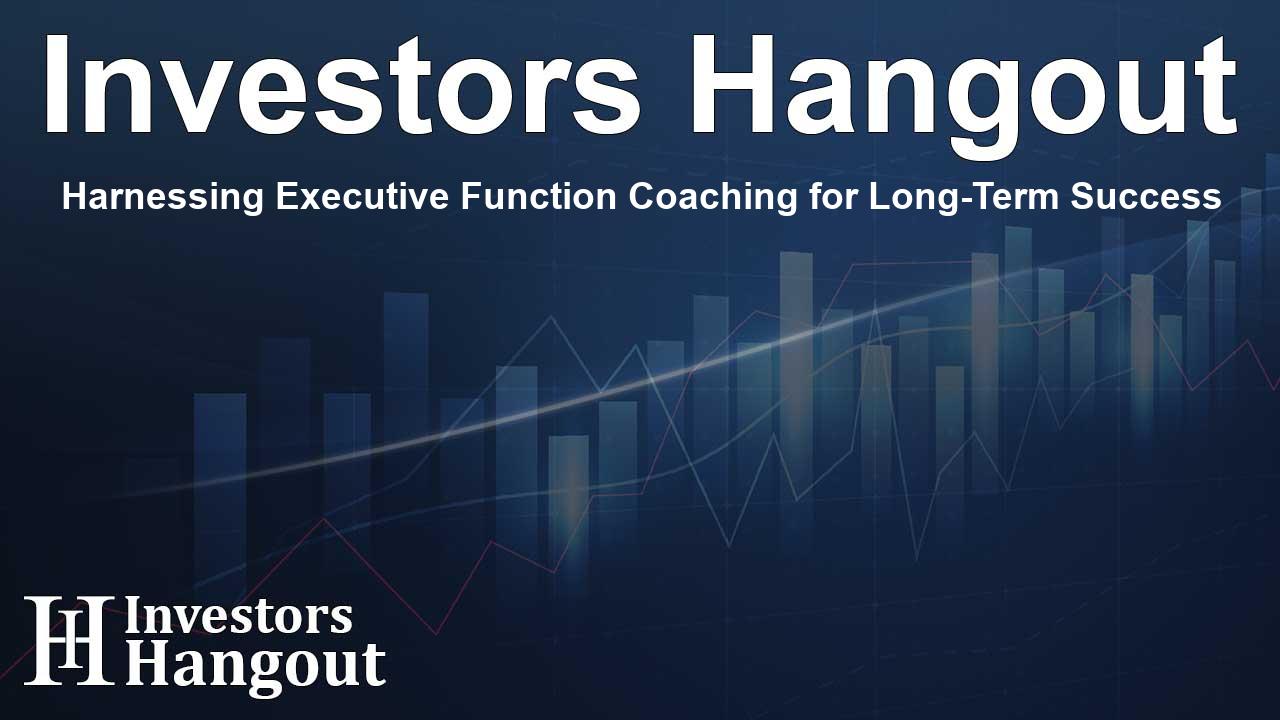Harnessing Executive Function Coaching for Long-Term Success

Understanding Executive Function Coaching
In today's fast-paced work environment, more professionals are recognizing the value of executive function coaching as a valuable tool for personal and professional development. This coaching aims to enhance an individual's ability to manage their thoughts, actions, and emotions effectively, especially within demanding roles.
The Journey of a Leader
Take, for example, a professional like Sage Ke'alohilani Quiamno, who embraced the role of a global DEI leader not too long ago. Starting in her new position, she faced the all-too-common overwhelm of multitasking and the pressure of meeting high expectations. As workdays extended beyond typical hours, she proactively responded to this stress by hiring a life coach, later termed an executive function coach.
Setting New Goals
With the coach's guidance, Quiamno began to refine her management techniques, focusing on her mental and emotional patterns. This coaching was more than just a short-term fix; Quiamno emphasized that it represented a long-term investment in her personal and professional growth. She continues to meet with her coach biweekly, demonstrating the ongoing nature of her commitment to improvement.
The Rising Trend
Quiamno’s experience is far from unique; a significant number of professionals across various industries are turning to executive function coaching to regain control over their work lives. The shift has emerged from the increasing stressors in our digital world and the evolving nature of the workplace, where distractions can derail focus.
Coaching in Education
According to experts like Jesse Ruderman from the University of Denver, the incorporation of executive coaches in educational institutions has become more prevalent. The university introduced its first executive function coach as a response to the challenges posed by the pandemic. Several other institutions have followed suit, reflecting a growing recognition of the importance of support structures in education and beyond.
The Impact of COVID-19
Clinical psychologist J. Russell Ramsay notes that the pandemic significantly distorted traditional work frameworks. With many employees suddenly remote, the loss of structured office life led to increased difficulties in managing work tasks efficiently. The absence of a well-defined start and finish to workdays has contributed to chronic stress, thereby making coaching a beneficial resource for many.
Adapting to Modern Challenges
As challenges persist beyond initial stressors, experts assert that the need for executive function coaching is paramount. It can serve not only as a remedy for personal challenges but also as a means of alleviating the burden on employers. Engaged employees are less likely to experience burnout and more likely to contribute positively to their workplace environment.
Benefits of Executive Function Coaching
Despite not being a universal solution to the distractions inherent in today’s work culture, executive function coaching offers numerous benefits. It equips workers with strategies to mitigate distractions and manage their time more effectively. Empowered with these skills, individuals can significantly boost their productivity and confidence in their roles.
Personal Growth and Accountability
For Quiamno, the coaching relationship has been transformative. After navigating through significant changes and challenges, including layoffs that impacted her team, she credits her coach for providing insights and support that have fueled her personal growth. The accountability aspect of coaching is particularly vital; it ensures sustained commitment to personal development and professional leadership quality.
Conclusion: A Valued Resource
In conclusion, executive function coaching has become an essential tool for many professionals. As the work environment continues to evolve, investing in this type of coaching can yield significant returns in productivity and well-being. It exemplifies a commitment to overcoming modern challenges while fostering long-term success.
Frequently Asked Questions
What is executive function coaching?
Executive function coaching focuses on enhancing personal productivity by improving skills like time management, organization, and emotional regulation.
Who can benefit from executive function coaching?
Professionals across various industries, especially those facing high-stress environments or managing multiple tasks, can greatly benefit from this coaching.
How often should one meet with an executive function coach?
Meeting every two weeks is common among clients, but it can vary based on individual needs and goals.
Can executive function coaching help with burnout?
Yes, it offers strategies to manage stress and overwhelm, potentially reducing the likelihood of burnout.
Is executive function coaching effective?
Many individuals report positive changes in their productivity and mental well-being after engaging with an executive function coach.
About The Author
Contact Ryan Hughes privately here. Or send an email with ATTN: Ryan Hughes as the subject to contact@investorshangout.com.
About Investors Hangout
Investors Hangout is a leading online stock forum for financial discussion and learning, offering a wide range of free tools and resources. It draws in traders of all levels, who exchange market knowledge, investigate trading tactics, and keep an eye on industry developments in real time. Featuring financial articles, stock message boards, quotes, charts, company profiles, and live news updates. Through cooperative learning and a wealth of informational resources, it helps users from novices creating their first portfolios to experts honing their techniques. Join Investors Hangout today: https://investorshangout.com/
The content of this article is based on factual, publicly available information and does not represent legal, financial, or investment advice. Investors Hangout does not offer financial advice, and the author is not a licensed financial advisor. Consult a qualified advisor before making any financial or investment decisions based on this article. This article should not be considered advice to purchase, sell, or hold any securities or other investments. If any of the material provided here is inaccurate, please contact us for corrections.
